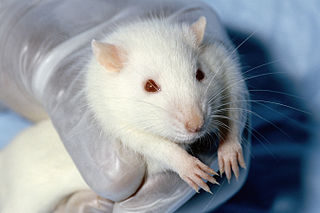
The Department for Environment, Food and Rural Affairs (Defra) is a ministerial department of the Government of the United Kingdom. It is responsible for environmental protection, food production and standards, agriculture, fisheries and rural communities in the entire United Kingdom. Concordats set out agreed frameworks for cooperation, between it and the Scottish Government, Welsh Government and Northern Ireland Executive, which have devolved responsibilities for these matters in their respective nations.
The Ministry of Agriculture and Forestry was a state sector organisation of New Zealand which dealt with matters relating to agriculture, forestry and biosecurity. It was commonly known by its acronym, "MAF".

Live export is the commercial transport of livestock across national borders. The trade involves a number of countries with the Australian live export industry being one of the largest exporters in the global trade. According to the Australian Bureau of Statistics, exports of live sheep rose 21.4% and live calves increased 9.7% between March 2017 and March 2018. During 2017 alone, Australia exported 2.85 million living animals in shipping containers and airplanes. The expansion of the trade has been supported by the introduction of purpose-built ships which carry large numbers of animals. The amount of livestock exported from the European Union grew to nearly 586m kilograms between 2014 and 2017, a 62.5% increase during the time period.

Joseph William Ludwig is an Australian barrister and retired politician. He was a member of the Australian Senate for the state of Queensland from July 1999 to May 2016, representing the Australian Labor Party. Ludwig served in a range of portfolios in the first Rudd and the second Gillard ministries until his resignation from Cabinet as the Minister for Agriculture, Fisheries and Forestry and Minister Assisting the Attorney-General on Queensland Floods Recovery, in 2013.
The Department of Agriculture, Environment and Rural Affairs is a government department in the Northern Ireland Executive, the devolved administration for Northern Ireland. The minister with overall responsibility for the department is the Minister of Agriculture, Environment and Rural Affairs. The department was called the Department of Agriculture and Rural Development between 1999 and 2016. The Minister of Agriculture previously existed in the Government of Northern Ireland between 1921 and 1972, where the department was known as the Ministry of Agriculture. The current Permanent Secretary is Katrina Godfrey.

The Minister for Agriculture, Fisheries and Forestry is an Australian Government cabinet position which is currently held by Julie Collins since July 2024 in the Albanese ministry.

The Minister of Agriculture is a minister in the New Zealand Government. It was re-created as a standalone portfolio in 2017 after previously existing continuously from 1889 to 1998, and again from 1999 to 2012. The current Minister is Todd McClay.
New Zealand Food Safety (NZFS), or Haumaru Kai Aotearoa, is the New Zealand government body responsible for food safety, and is the controlling authority for imports and exports of food and food-related products. In April 2012 it was merged into the Ministry for Primary Industries.

Animal testing regulations are guidelines that permit and control the use of non-human animals for scientific experimentation. They vary greatly around the world, but most governments aim to control the number of times individual animals may be used; the overall numbers used; and the degree of pain that may be inflicted without anesthetic.

Animal Control Products Limited is a state-owned enterprise of the New Zealand government. Its main business is the manufacture and sale of pest management products.

Wildlife Act 1953 is an Act of Parliament in New Zealand. Under the act, the majority of native New Zealand vertebrate species are protected by law, and may not be hunted, killed, eaten or possessed. Violations may be punished with fines of up to $100,000.

The Crimes Act 1961 is an act of New Zealand Parliament that forms a leading part of the criminal law in New Zealand. It repeals the Crimes Act 1908, itself a successor of the Criminal Code Act 1893. Most crimes in New Zealand are created by the Crimes Act, but some are created elsewhere. All common law offences are abolished by section 9, as are all offences against acts of the British Parliaments, but section 20 saves the old common law defences where they are not specifically altered.

In New Zealand, animals are used in many situations for research, testing and teaching (RTT).
The Ministry for Primary Industries is the public service department of New Zealand charged with overseeing, managing and regulating the farming, fishing, food, animal welfare, biosecurity, and forestry sectors of New Zealand's primary industries.
Cats are a popular pet in New Zealand. Cat ownership is occasionally raised as a controversial conservation issue due to the predation of endangered species, such as birds and lizards, by feral cats.

Animal welfare in New Zealand is governed by the Animal Welfare Act 1999 and a number of organisations actively advocate for both animal welfare and animal rights. Pest control and farming practices have been scrutinised with respect to animal welfare issues. The legality of killing dogs and cats for consumption has also been criticized.

The judiciary of New Zealand is responsible for the system of courts that interprets and applies the laws of New Zealand. It has four primary functions: to provide a mechanism for dispute resolution; to deliver authoritative rulings on the meaning and application of legislation; to develop case law; and to uphold the rule of law, personal liberty and human rights. The judiciary is supported in its work by an executive department, the Ministry of Justice.
Korea Animal Rights Advocates (KARA) is a non-profit organization that supports animal welfare in Korea and deals with animal cruelty cases. It is also responsible for the care of abandoned animals and their adoption.









